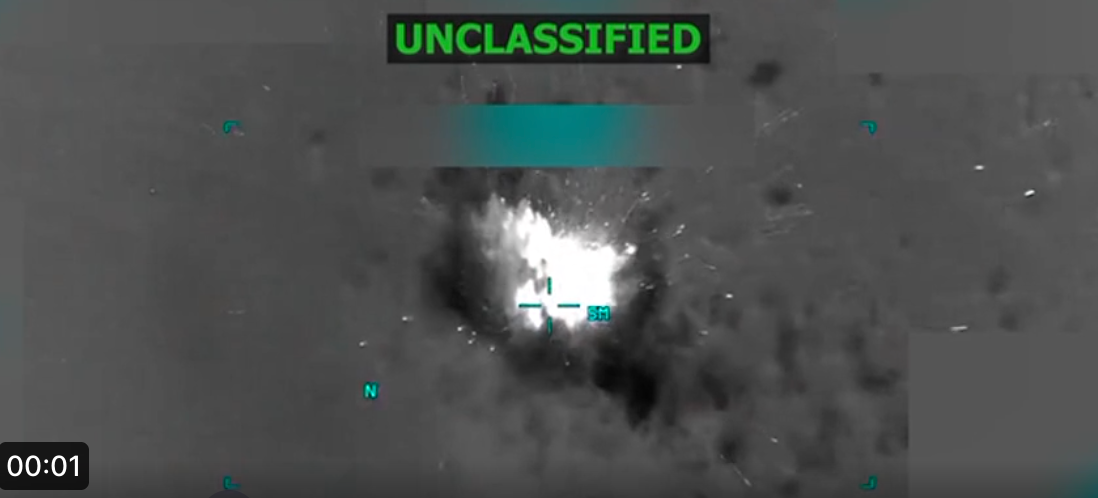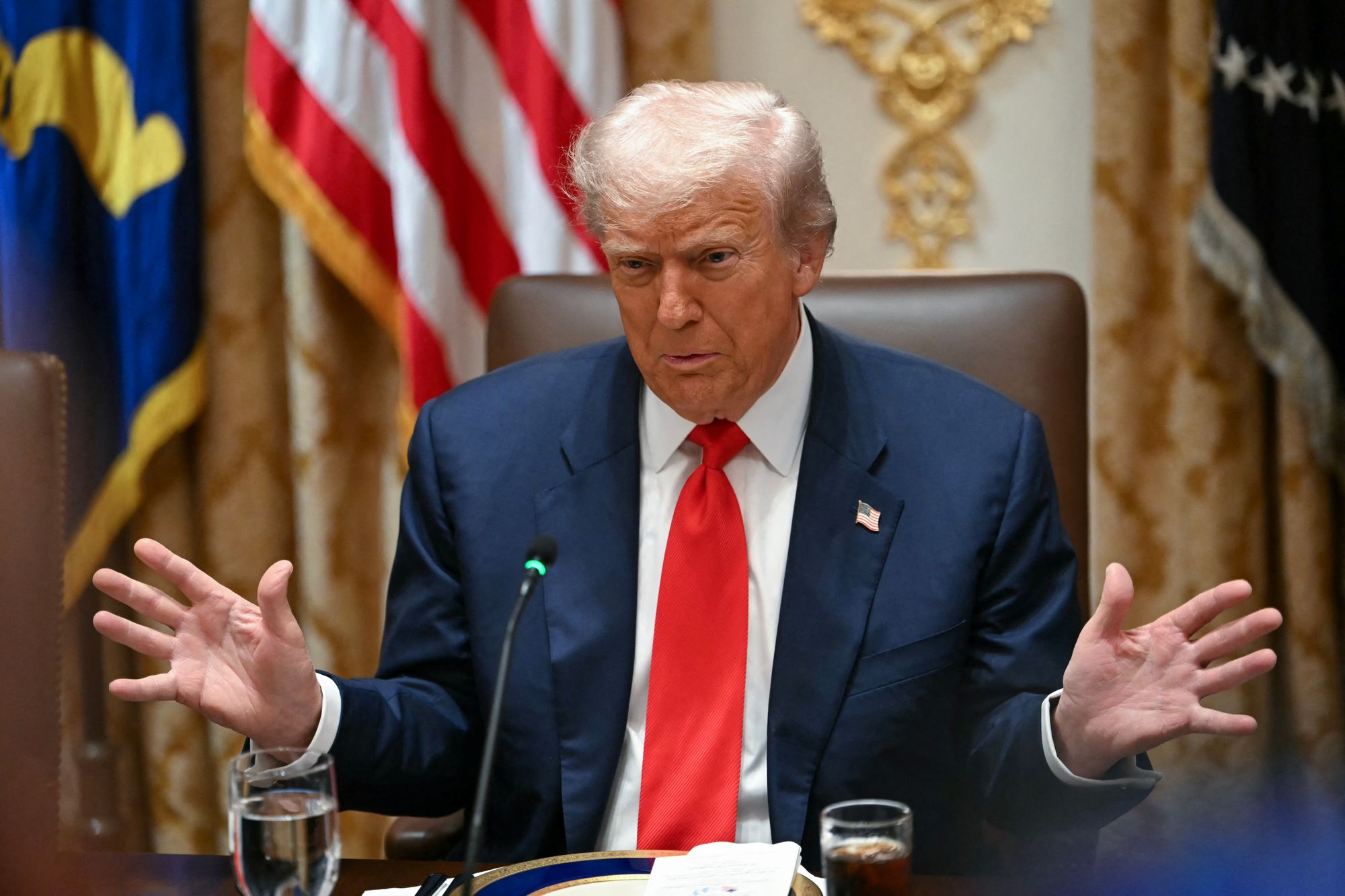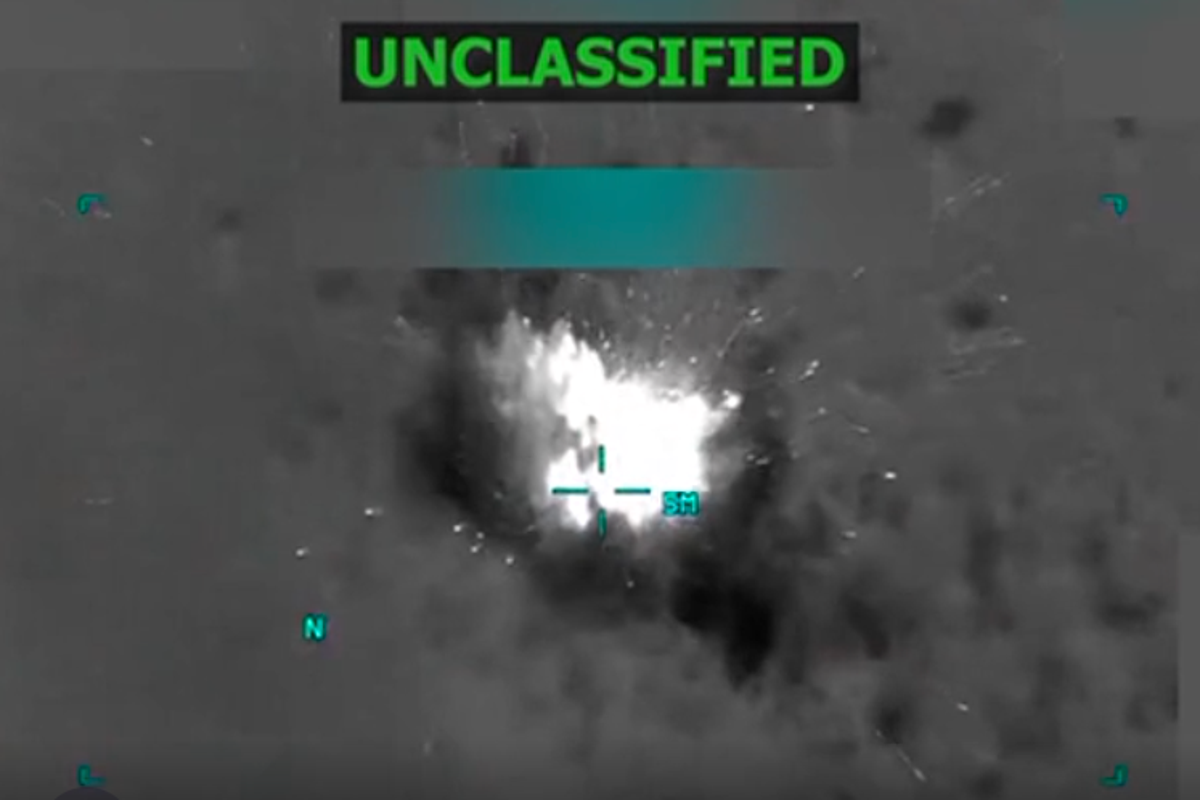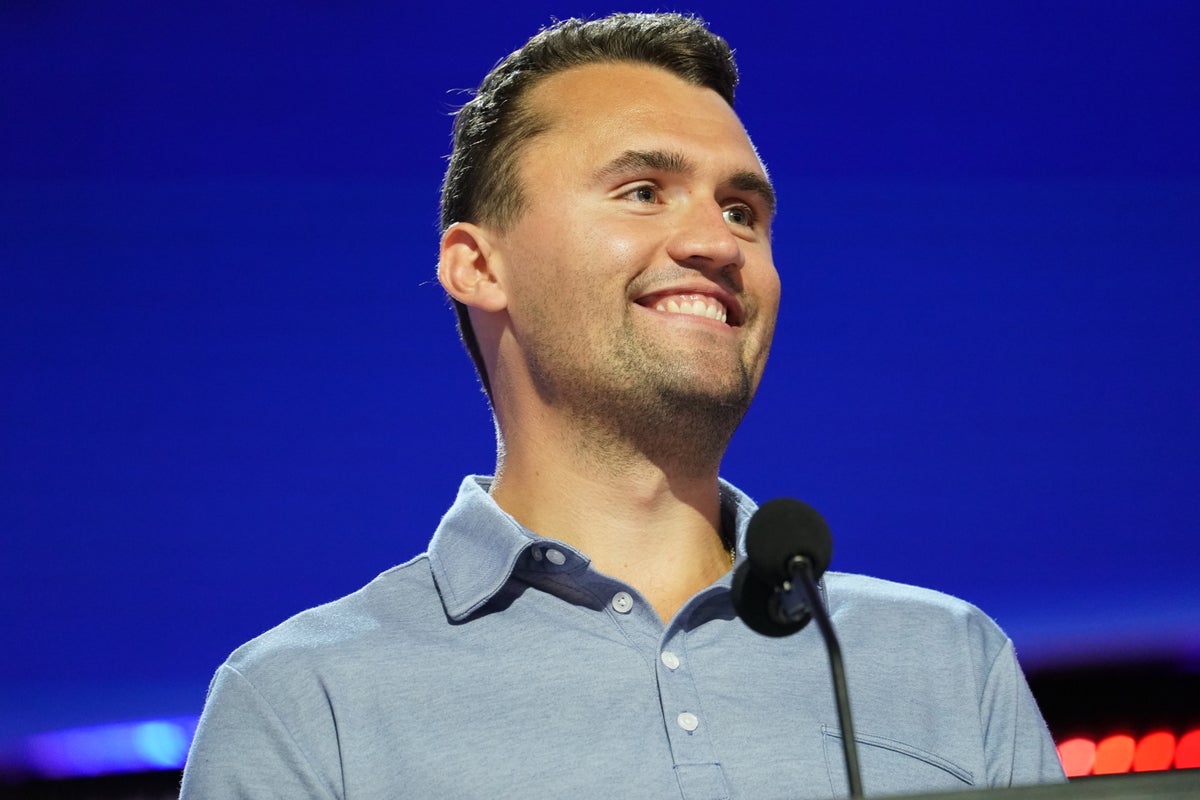President Donald Trump said the U.S. has destroyed another boat off the coast of Venezuela, killing six suspected drug traffickers as his administration continues to target vessels in the Caribbean.
Trump wrote on his Truth Social platform Tuesday that Defense Secretary Pete Hegseth ordered the strike, which he also shared a video of online.
“Intelligence confirmed the vessel was trafficking narcotics, was associated with illicit narcoterrorist networks, and was transiting along a known DTO [drug trafficking organization] route,” Trump wrote.
The president continued: “The strike was conducted in International Waters, and six male narcoterrorists aboard the vessel were killed in the strike. No U.S. Forces were harmed. Thank you for your attention to this matter!!!!!!”
It marks the fifth time that a deadly strike has been carried out in the Caribbean since September, as the U.S. ramps up its military presence in the region to combat what Trump claims is an influx of drug smuggling.

On September 2, the U.S. targeted an alleged drug-carrying vessel in the Caribbean that Trump said was being operated by the Tren de Aragua gang, killing 11 people on board. A strike on September 15 killed three “terrorists,” Trump said at the time.
Three other strikes have been carried out since, bringing the total number of people killed up to 27, according to Forbes.
Many Democratic lawmakers have pushed back on the strikes, arguing they violate U.S. and international law.
Last week, the Senate voted on a war powers resolution that would have stopped the Trump administration from conducting the operations unless Congress authorized them, but it failed to pass.
Meanwhile, the Trump administration said it “determined that the United States is in a non-international armed conflict with these designated terrorist organizations,” according to a memo to Congress that was obtained by the Associated Press.
As a result, Trump directed the Pentagon to “conduct operations against them pursuant to the law of armed conflict.”
Despite their claims, the Trump administration has not provided any evidence to lawmakers to suggest that the boats they have targeted were carrying narcotics, sources told the AP.
Additionally, Venezuelan Defense Minister Vladimir Padrino said last week that the U.S. government knows the boats it’s targeting are not being used for drug trafficking.
During televised remarks, Padrino claimed the U.S. was trying to “force a regime change,” and warned of a possible escalation.
“I want to warn the population: We have to prepare ourselves because the irrationality with which the U.S. empire operates is not normal,” Padrino said. “It’s anti-political, anti-human, warmongering, rude and vulgar.”

However, as the U.S. ramps up its military presence in the Caribbean along a corridor once known as being popular for moving illicit goods and people, smugglers have found other ways to get illegal drugs into the U.S., according to a New York Times report.
With Trump also cracking down on the southern border and now in the Caribbean, drug traffickers are taking new measures to sneak contraband into the U.S.
Some smugglers hide drugs in cargo vessels, which makes it difficult to detect, as the drugs are mixed in with legal goods, like produce. In Trinidad and Tobago, there has been an increase in illegal air flights dropping bales of drugs at sea, to be picked up later by larger vessels, according to the report.
“We are seeing changes in modus operandi,” Patrae Rowe, who heads the Firearms and Narcotics Investigation Division of the Jamaica Constabulary Force, told The Times. “More covert means are being used to transship drugs,” he said, like hiding drugs in food shipments.
While the Trump administration claims the Caribbean and Venezuela are the culprits for illicit drugs entering the country and killing Americans, most maritime drug trafficking headed for the U.S. takes place on the Pacific, U.S. and United Nations data show.
Though experts admit that the Caribbean is a hub for trafficking Colombian cocaine, it plays no role in moving fentanyl, also a key concern of the president.
The U.S. Coast Guard seized nearly 175,000 kilos, or about 193 tons, of cocaine from the seas during the fiscal year that ended in September — more than double the amount from the year before.
A third of that was taken from the Caribbean, according to the report.


